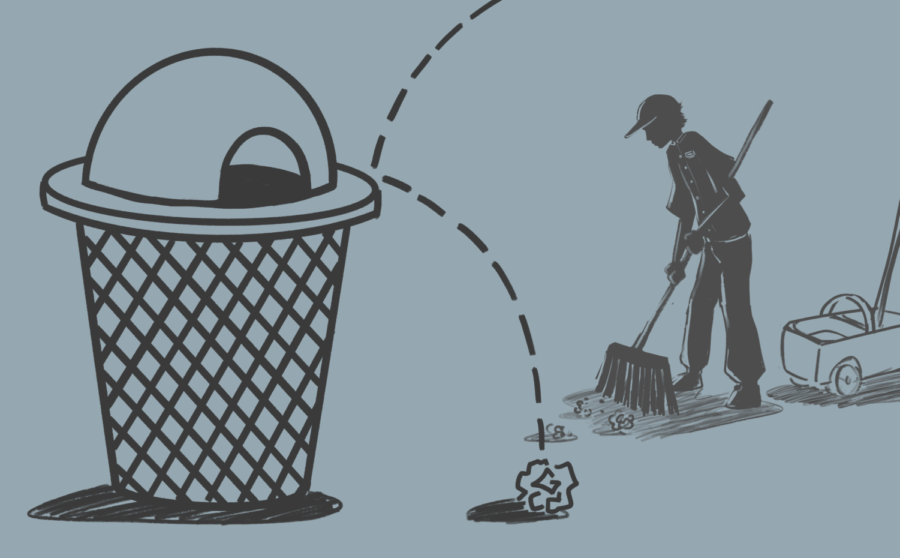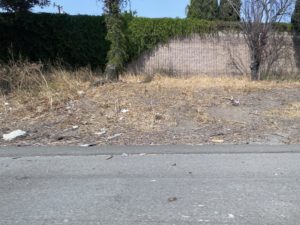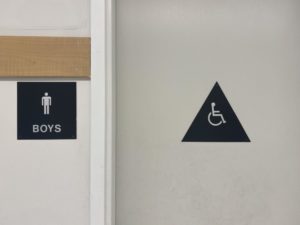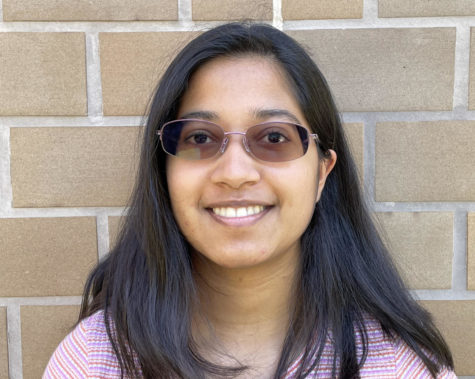DVHS students need to increase their cleanliness awareness around campus.
Students at DVHS continue to litter around the school campus, despite lack of custodial staff and an ongoing pandemic.
March 6, 2022
While walking through Dougherty Valley’s hallways during lunch, a group of students playing with a trashcan caught my attention. They were initially passing the trash can around, and later they poured all the garbage inside over a student, not only harming a student but also littering the hallway. I was appalled to see the sight, as it felt wrong for too many reasons; it was unsanitary, cruel, and inconsiderate. Yet, afterwards, the students just laughed it off, without understanding the impact of their actions.
During an ongoing pandemic, it is surreal to see people littering, let alone playing with trash cans. Unfortunately, this was only one out of the multiple cases I recently witnessed where students intentionally trashed the campus. I have seen students uproot and roll around in trash cans. On other accounts, some students carelessly left their trash after lunch and others tried to play basketball with garbage, forgetting to pick up all the missed shots and put them into the trash can.
As campus-wide littering persists, students need to understand the gravity of the effects that this issue has on the DVHS community, especially the custodians.
Due to Covid-19, all Californian public schools, including DVHS, are mandated to follow a cleaning procedure to ensure the safety of students’ health.
Assistant Principal, Jessica Hoyt, explains, “We have to follow the state guidelines, [including] increased sanitation to keep the facilities safe. Points of high contact, such as tabletops are sanitized daily.”
To keep the student body safe during these precarious times, the custodians work extra hours. However, to keep a campus this large clean and sustain tidiness during a staff shortage poses a challenge.
“On average, it’s 14 positions allocated for custodians at our site. And if we have four to six of them missing, that’s a huge percent out; so it’s roughly a workload and a half. The hard part about cleaning a facility of this size, is that when a task is left undone, for multiple days, it tends to take a lot more effort to clean,” summarizes Hoyt.
If students add to this by littering, it increases the strain of their workload, especially when most of the cleaning is done voluntarily.
Aniket Dey, the Junior Class Secretary, explains, “Janitors typically aren’t paid to pick up trash that isn’t in the trash cans. Their job is to simply pick up trash cans from the classes, and in the trash cans that are located around school. If trash is left in the quad, or throughout the building, that’s not the janitor’s job to pick that up. That turns into overtime work they have to do.”
As littering increases, the workload extends for the custodial staff. Resources and expenses are also expended during this process. This issue can only be solved, though, once the student body becomes aware of their cleaning responsibilities.
Due to multiple factors including school lunches, lack of management, and mob mentality, students have become careless with trash.
“The problem with free school wide lunches is that it creates a huge generation of trash, because people aren’t paying for their lunches. So many times, it’s students thinking, ‘if I waste food it’s not [wasting my money]. So I don’t really care’. Secondly, due to Covid-19 people are also being forced to keep the food once taken. That creates a lot of waste on campus,” summarizes Dey.
“When one student does it, the other one sees it, they’re like, ‘Oh, well, I get away with that.’ The behavior spirals and others feed off of it. Another thing that’s exacerbating the problem [is that] we have less campus security and campus monitors this year. The ones we do have are spread out spread thin,” Somerville adds on.
As the Covid-19 regulations direct campus cleanliness and custodians continue to labor, it is evident without the inclusion of student-conscientious cleaning this issue is festering into a major problem for DVHS.
The school staff and the leadership team are working to increase awareness among students of their actions.
Principal, Evan Powell, explains, “I’ve talked with different groups of students from leadership and journalism students about campus-wide littering. We’ve addressed that students [should] take responsibility for their trash.”
It is time students hold themselves responsible for this imminent problem.
Somerville concludes, “One piece of trash from one person on the ground multiplied by about 3500 students and only 10 custodians on campus; that’s 3500 pieces of trash for only 10 people to pick up. So, just be conscious of your effect on others.”






